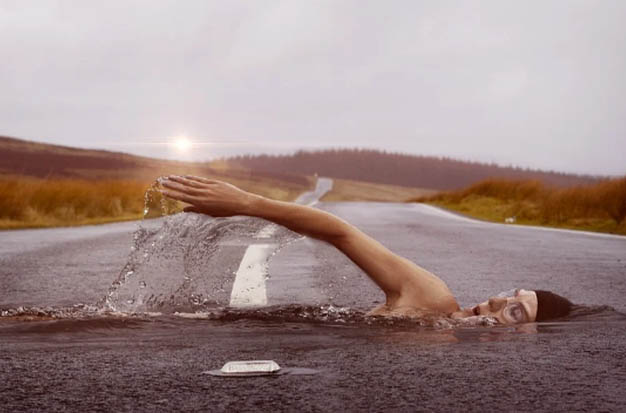Will You Forget How To Swim Sometimes?
At some point during our youth, many of us pick up swimming. But some of us give up or take breaks between swim seasons or sessions.
Once someone has practiced this complex skill enough times to master it, they cannot forget how to swim. The human brain serves as a procedural memory for information about swimming. Long-term and capable of implicit recall even after a long period of inactivity, this memory type.
Why Swimmers Never Forget How To Swim
The anatomy of the human brain is extremely intricate. We still don’t fully understand many aspects of the human brain, especially how memory is created and maintained. It is necessary to examine what is currently known about procedural memory in order to fully comprehend why swimmers never truly forget how to swim.
Differently than any explicit memory, procedural memory operates in a different way. Even if you are unable to verbally describe what is being remembered, procedural memories can be easily recalled.
In terms of memory formation and recall, knowing how to swim is somewhat analogous to knowing how to ride a bike. You never forget how to ride a bike once you learn it. Your subconscious retains the neural patterns connected to this complex movement no matter how much time has passed. You need to use very little conscious brainpower.
There are several other popular examples of procedural memory that you may not even be aware of, including:
- Driving a car
- Going up and down a staircase
- Tying your shoes
- Using eating utensils
The same principles apply to swimming as in the previous examples. Whether you realize it or not, once you’ve mastered this skill after swimming hundreds or thousands of times, your nervous system has become accustomed to these intricate motor patterns.

How Memory Affects Swimming
We can now discuss how someone can forget how to swim by using what we already know about how memory functions.
We know that it is possible for someone to forget how to swim because, technically, they never really knew how to swim in the first place, if they had little experience with swimming and what was taught did not stick in their long-term memory.
What about a person who has had sufficient swimming experience to commit it to memory? Will they really forget how to swim?
I’m going to say the answer is no based on my own experience as well as tales from friends, family members, and complete strangers. You can still remember how to swim subconsciously even if you can no longer remember it consciously thanks to your implicit memory.
Having said that, memories are erratic, as I’ve said numerous times. They are grossly inaccurate recreations of your heavily biased interpretation of the circumstances, not necessarily the actual facts. Certain details will be messed up. Even thoughts that you consciously have on a regular basis can gradually start to change in your memory over time, eventually changing it entirely.
As an aside, you can accurately maintain a record of what actually occurred by recording significant moments thanks to how accessible cameras are these days. I’ve watched some videos of events that I believed I could recall perfectly, only to discover that my memory was terribly inaccurate. Your memory is not as sharp as you think it is unless you are neurodivergent.
Top Tips For Returning To The Pool After A Long Break
Practice keeping your head above the water
It’s crucial to move as slowly as necessary once you’re ready to go to the pool. No matter if you played water polo when you were younger or used to swimming in the sea every summer, you shouldn’t expect yourself to perform at the same level the first time you get back in the pool after a long absence.
Instead, warm up outside the pool and then slowly enter until your feet are no longer touching the bottom. Try to maintain a head-above-water position by swimming straight ahead rather than left or right. You’ll feel more at ease in the water as a result of this, which will help you awaken your natural instincts as a swimmer. Start in the shallow end and slowly work your way down if you don’t feel ready to dive right in.
Strengthen your core
Swimming works nearly every muscle in the body, from the neck to the legs, but the core is ultimately in charge of coordinating every part with one another. Before beginning to reintroduce the movements you will be making while swimming, it is crucial to work on strengthening your core. Even though your body might not be accustomed to swimming freestyle or backstroke, a strong spine will give you the support you need to resume your previous strokes.
Fortunately, there are many exercises you can perform outside of the water to begin strengthening your core before going back into the pool, such as playing volleyball or doing planks.
Start with breaststroke
Although everyone has a preferred swimming style, breaststroke is typically a good place to start as you navigate your first lane. Breaststroke will not only make it easier for you to stay in the water longer while keeping your head above the surface and your eyes forward, but it will also make you feel less exhausted. This is especially true if you are feeling nervous. Just keep in mind that swimming with your head above the water for an extended period of time is bad for your neck.
Final Words
It may seem absurd to many people that one can lose their swimming ability. But the risk of forgetting how to swim is as real as it gets. You run the risk of getting into trouble if you overestimate your swimming prowess. Remember, even if you’re an adult, asking for assistance is never shameful.
